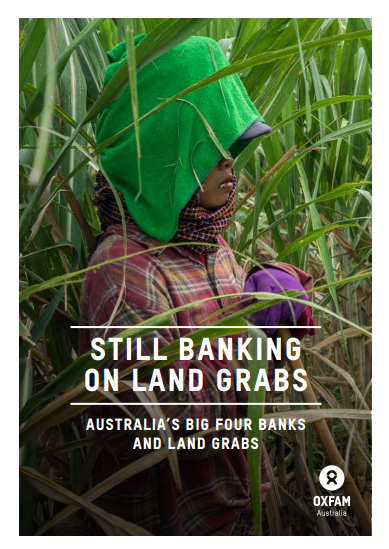
Still Banking on Land Grabs
Publication Year: 2016 / Sources: Oxfam AustraliaLand grabs — often involving forced evictions — are still taking place in some of the world’s poorest countries. This is having devastating impacts on the lives of vulnerable rural communities. Over the last 15 years, 40 million hectares have changed hands through large-scale land acquisitions — much of which is linked to agriculture and timber land grabs.
Download: English | Khmer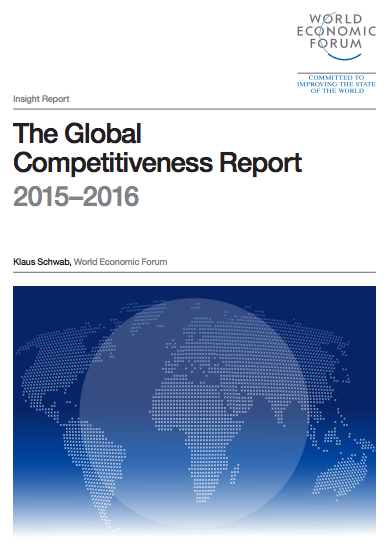
The Global Competitiveness Report 2015-2016 : Cambodia
Publication Year: 2015 / Sources: World Economic ForumThe Global Competitiveness Report 2015-2016 assesses the competitiveness landscape of 140 economies, providing insight into the drivers of their productivity and prosperity. The Report series remains the most comprehensive assessment of national competitiveness worldwide.
Download: English | Khmer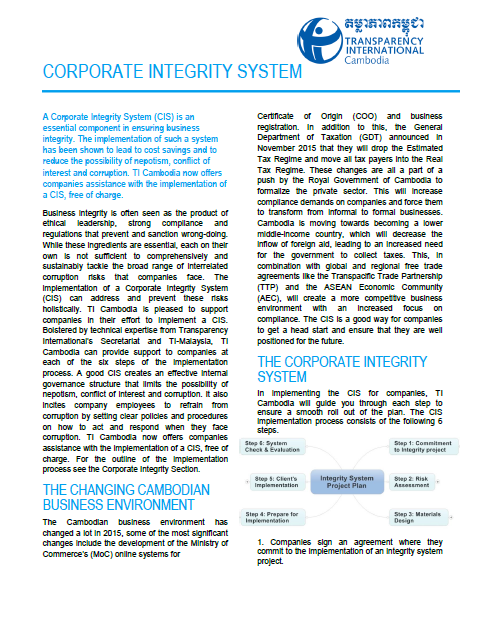
Cooperate Integrity System
Publication Year: 2015 / Sources: Transparency International CambodiaA Corporate Integrity System (CIS) is an essential component in ensuring business integrity. The implementation of such a system has been shown to lead to cost savings and to reduce the possibility of nepotism, conflict of interest and corruption. TI Cambodia now offers companies assistance with the implementation of a CIS, free of charge.
Download: English | Khmer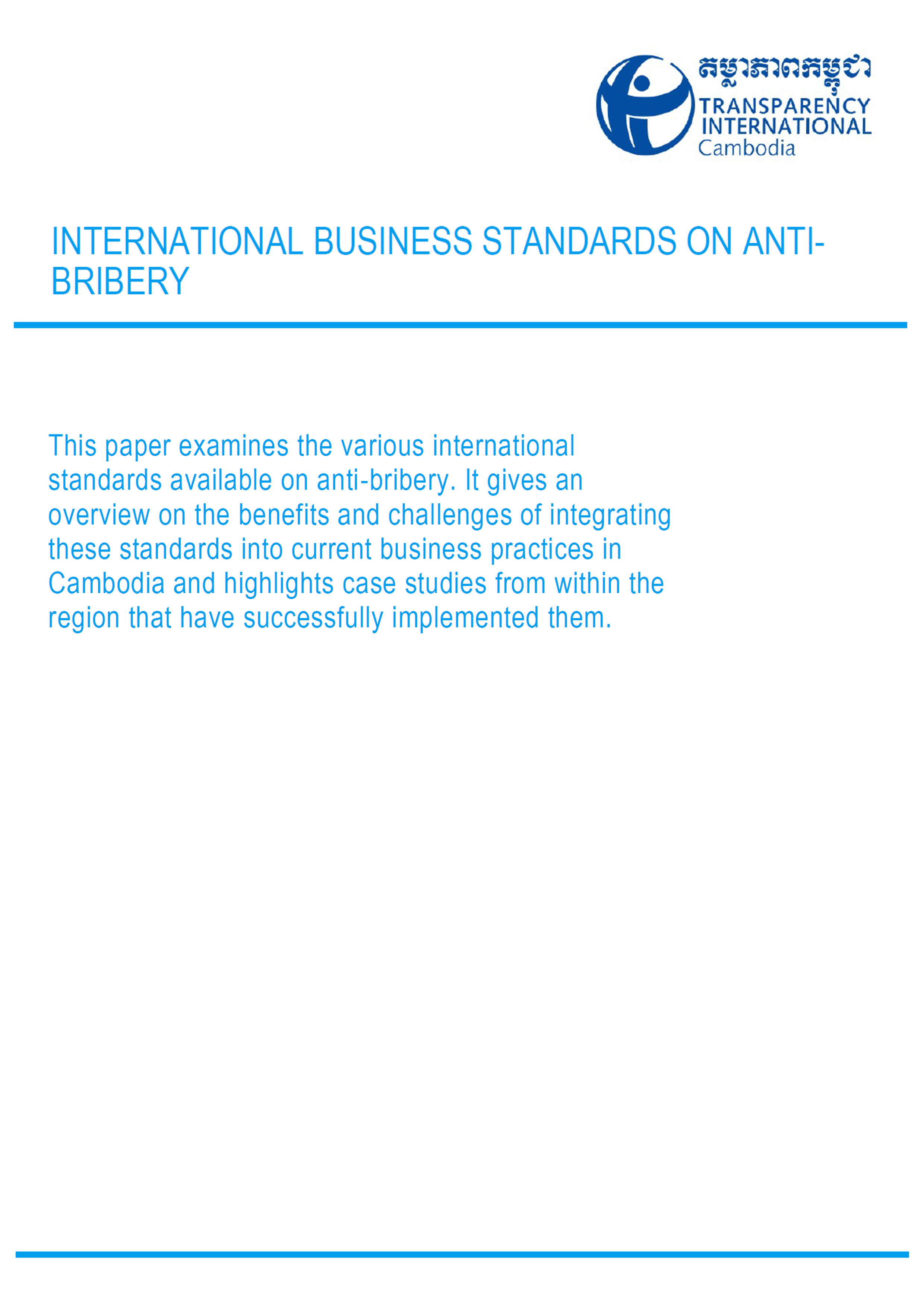
International Business Standards on Anti-bribery
Publication Year: 2015 / Sources: Transparency International CambodiaThis paper examines the various international standards available on anti-bribery. It gives an overview on the benefits and challenges of integrating these standards into current business practices in Cambodia and highlights case studies from within the region that have successfully implemented them.
Download: English | Khmer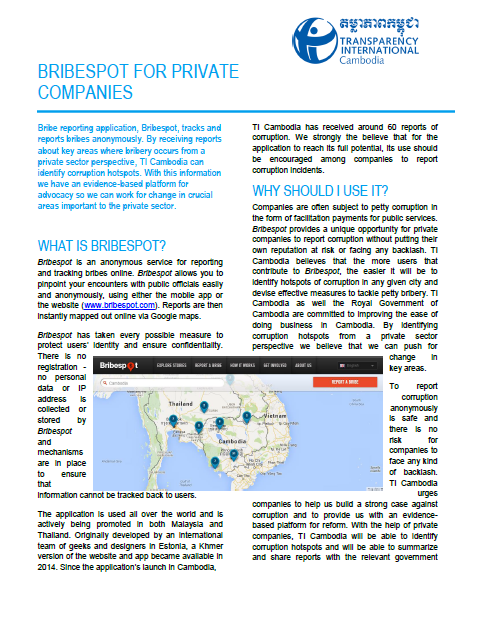
Bribespot for Private Companies
Publication Year: 2015 / Sources: Transparency International CambodiaBribe reporting application, Bribespot, tracks and reports bribes anonymously. By receiving reports about key areas where bribery occurs from a private sector perspective, TI Cambodia can identify corruption hotspots. With this information we have an evidence-based platform for advocacy so we can work for change in crucial areas important to the private sector.
Download: English | Khmer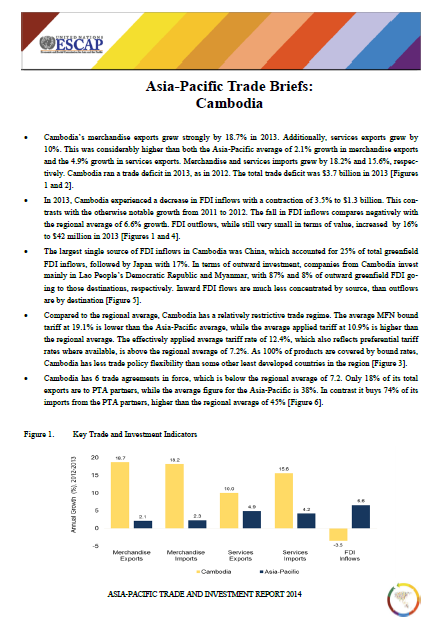
Asia-Pacific Trade Briefs: Cambodia
Publication Year: 2014 / Sources: United Nations Economic and Social Comission for Asia and the Pacific (ESCAP)Cambodia’s merchandise exports grew strongly by 18.7% in 2013. Additionally, services exports grew by 10%. This was considerably higher than both the Asia-Pacific average of 2.1% growth in merchandise exports and the 4.9% growth in services exports.
Download: English | Khmer
The Economic Burden of the Health Consequences of Violence Against Children in Cambodia
Publication Year: 2015 / Sources: Royal Government of Cambodia & UNICEF CambodiaViolence against children exists in every country in the world, cutting across culture, class, education, income and ethnic origin. Sadly, Cambodia is no exception. Childhood violence can have lifelong adverse health, social and economic consequences for survivors, including behavioural problems and cognitive dysfunction; mental and physical health conditions…etc.
Download: English | Khmer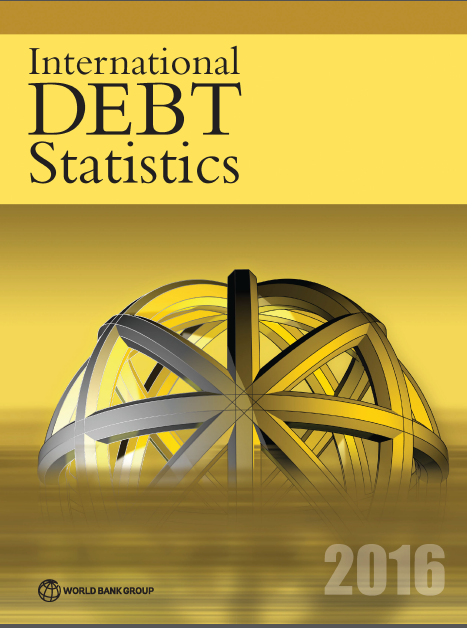
International Debt Statistics 2016
Publication Year: 2016 / Sources: World Bank GroupInternational Debt Statistics 2016 focuses on financial flows, trends in external debt, and other major financial indicators for low-, middle-, and high-income countries. The report includes more than 200 time series indicators from 1970 to 2014 for most reporting countries.
Download: English | Khmer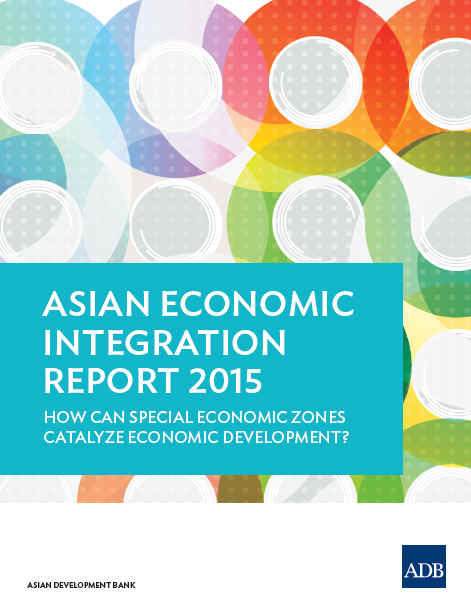
Asian Economic Integration Report 2015: How Can Special Economic Zones Catalyze Economic Development?
Publication Year: 2015 / Sources: Asian Development BankAsia’s trade has slowed faster than world trade; trade growth has been below economic growth since 2012. Structural factors such as slower expansion of global value chains and growth moderation in the People’s Republic of China may be at play, but the region must embrace further efforts to make trade and investment regimes more open.
Download: English | Khmer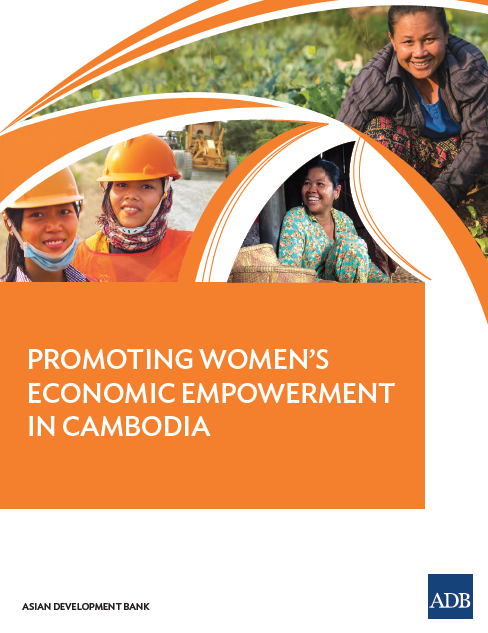
Promoting Women’s Economic Empowerment in Cambodia
Publication Year: 2015 / Sources: Asian Development Bank (ADB)Women’s economic empowerment is essential for more inclusive growth in Cambodia. This study takes stock of the major gender issues in the Cambodian economy seen through the lens of women’s participation, benefit, and agency—the three prerequisites for a fairer distribution of the benefits of growth. It examines trends in the labor market and obstacles to women’s economic empowerment, particularly in agriculture, business development, and wage employment.
Download: English | Khmer